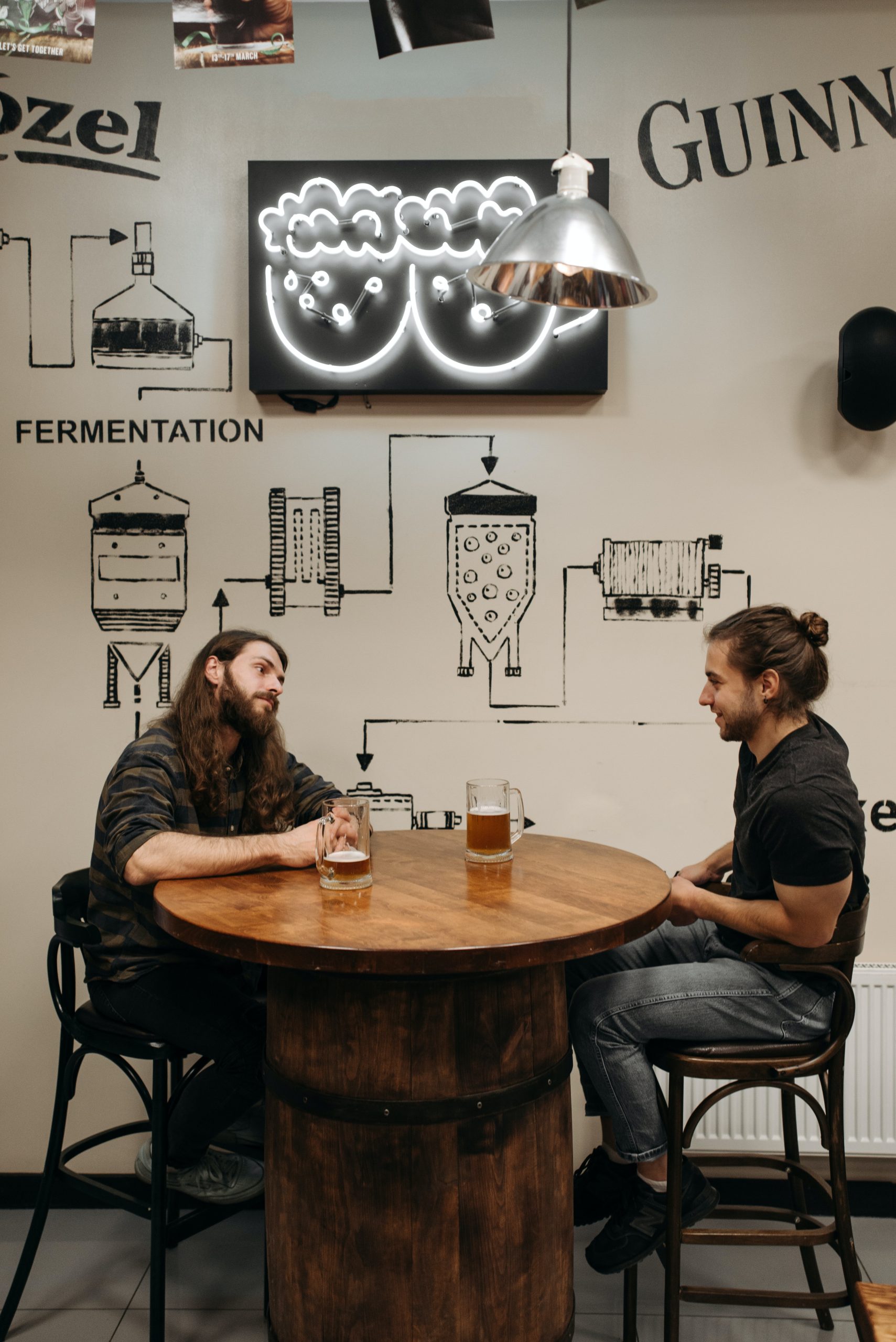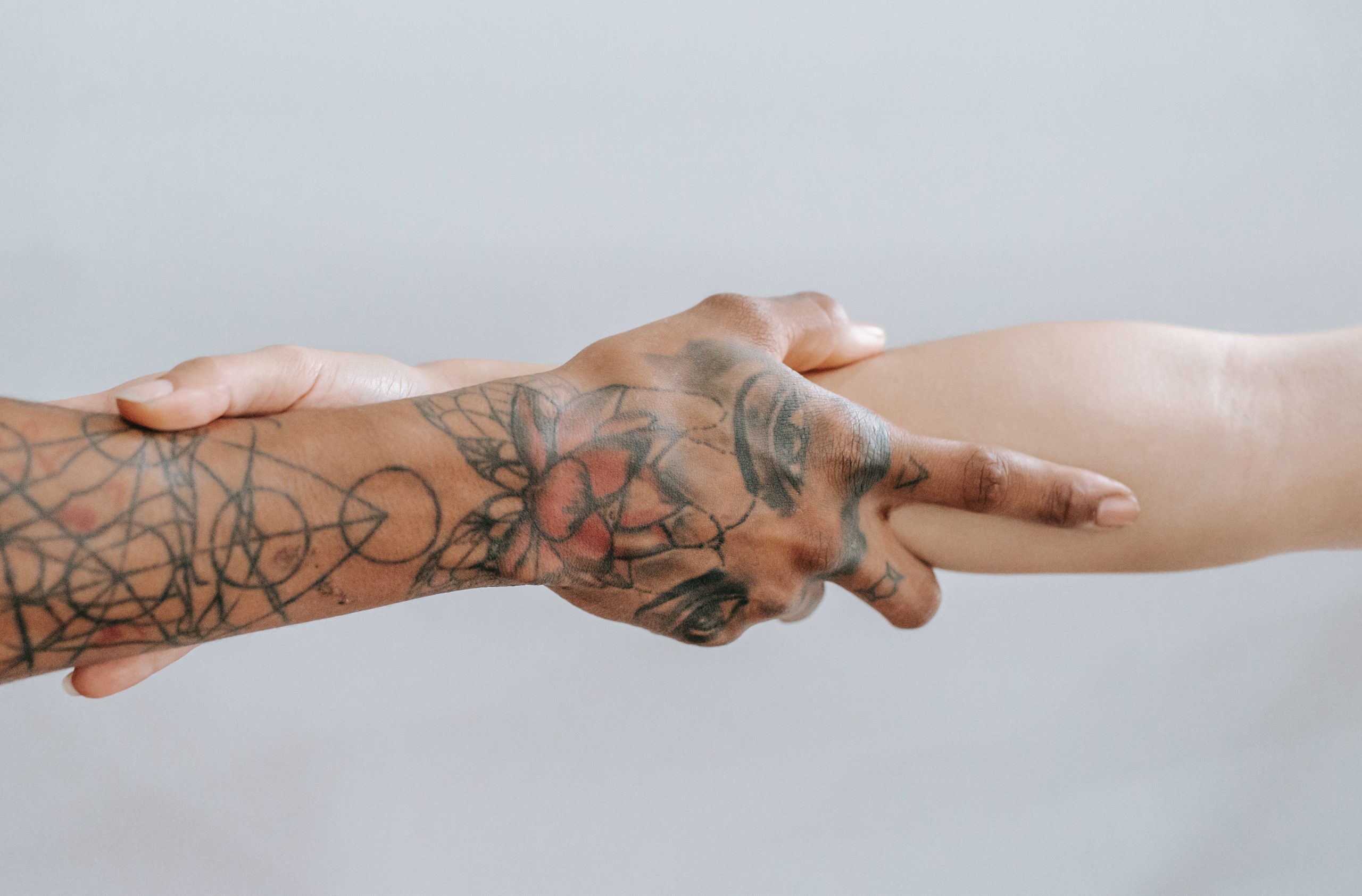“Man Up” & The Stigma About Men’s Mental Health
August 2, 2022

Trigger Warning: Suicide
Fear in the Face of Therapy

Photo Credit: Andrew Neel via Pexels
There’s a lot of stigma, secrecy, and reluctance cloaking the discussion of men’s mental health. As was traditionally passed down from the males before them, many men feel pressured to be stoic about their emotions, stress, trauma, and general mental health. In turn, there is also plenty of pressure on men to cope with the ups and downs of mental health silently and alone. Worse, a number of men won’t admit to having “mental health” at all (spoiler alert: we all do). Because of these societal norms and stigmas amongst males, there’s this seemingly insurmountable fear of the backlash tied to acknowledging and expressing their emotions. Just like any other gender, men do get lonely, experience grief, and feel vulnerable. Yet, for some reason, the antiquated response to “Man up!” or “Suck it up!” continues to be perpetuated, creating generations of dudes around the globe (demographics and cultures do not discriminate on this front) who fear expressing themselves, struggle to identify and/or regulate their emotions, and are definitely not into going to therapy. “Men don’t go to therapy because of fear,” said Ken Sann, LCSW, CSAC, ICS and Foundations Health & Wholeness therapist, “Due to cultural stigmas, many men have a hard time opening up to express how they feel.” This fear is unfortunately understandable. Who wants to be vulnerable if they are going to be shamed (we won’t even get into the name-calling bit) back into hiding each time they try to speak what’s on their heart? Precisely no one. It’s easier to remains silent.
The problem is that men’s mental health silence is killing them. Men are 4 times more likely to complete suicide than their female counterparts. Depression and suicide are among the leading causes of death in men, and yet men remain far less likely to seek therapeutic mental health treatment than women due to status quo social norms, downplaying their emotions/trauma, and a reluctance to speak up.
So, the proof is in the numbers: “Man up!” is not the answer to the myriad of issues surrounding men’s mental health. It is, in fact, a lingering symptom of toxic masculinity embedded in our culture that is preventing men from feeling and healing.
Something needs to change.
Shifts on the Horizon

Photo Credit: Alex Green via Pexels
What’s to be done? Part of the solution to this crisis is to eliminate barriers between men and mental health care, including the spread of unhelpful perspectives to “just deal with it.” This is especially true for BIPOC men and men who identify as part of the LGBTQIA+ community who experience stressors and disparities unique to their identities.
The first course of action is to break the silence and normalize mental health conversations. “It’s important that men understand it’s perfectly okay to not be okay,” says Ken Sann, “Everyone has a story they need space to share.” Humanity is stronger when we come together, so in order to push back against outdated cultural norms, we must roll up our collective sleeves and put in the labor. It starts with speaking out and having transparent conversations about mental health. The more we collectively speak up about mental health, the closer we get to normalizing mental health discussion for everyone. Together, we hold the power to shift cultural norms that would offer men access to openly discuss emotions, mental health, and going to therapy without shame. It’s up to all of us to change the tone of the conversation.

Photo Credit: Pavel Danilyuk via Pexels
Additionally, the conversation about mental health – what it is and how we take care of it – needs to happen earlier. It’s crucial to provide mental health education starting at a young age, so we can shift the conversation away from mental health disorders or going to therapy being a “sign of weakness,” especially amongst the male population. Moreover, accessible mental health education would provide general populations with the ability to recognize the signs of mental health issues in themselves and others, creating more mentally healthy communities overall, not to mention less discomfort when discussing mental health. “If more individuals understand that depression and other mental illnesses are caused by actual chemical changes in the brain,” states Sage Neuroscience Center, “the way we talk and think about mental illness could change for good, and men could feel more comfortable seeking the treatment they need. If we continue to develop a more evolved cultural understanding of mental illness, depression, and substance use disorder, we could foster great transparency around these issues and make it easier for people to talk with others about their problems and not feel ashamed to ask for help.” To eliminate the stigma of men’s mental health in a lasting way, the shame so often associated with mental health and openly expressing emotions must be eliminated. With persistent efforts to normalize mental health discussion, mental health therapy and healing can become more accessible for all populations over time.

Photo Credit: Tim Samuel via Pexels
Presently, better trends regarding men’s mental health appear to be on the rise. More resources dedicated to men’s mental health are becoming available, such as Man Therapy and Heads Up Guys (both of which include depression screening tools). Men are using social media platforms, such as TikTok and Instagram, to be role models for openly discussing mental health, therapy, and living with a mental health diagnosis (for example, MMA Fighter Paddy Pimblett’s recent post-fight plea regarding men’s mental health has millions of views).
But we still have a long way to go in terms of scrubbing the stains of toxic masculinity out of the men’s mental health conversation and creating a more accessible mental health climate for men, including a more concerted effort to make space for BIPOC men and men who identify as part of the LGBTQIA+ community to heal and thrive. According to Medical News Today, “…no intervention is complete until it accounts for the groups that face systematic marginalization, such as men of color and those of diverse ethnic and racial backgrounds.” In order to take steps in the right direction, trusted research would need to be conducted to explore what needs to change to “make formal [therapeutic] support more accessible” for men across the spectrum of diversity. Alongside open conversation, increasing accessibility to obtain mental health care, including support for people from lower-income backgrounds, and normalizing mental health care as health care are key parts to collectively moving forward in an inclusive direction.
Better Together

Photo Credit: Belle Co via Pexels
Above all, the battle to dissolve the stigma surrounding men’s mental health and improve equal access to receiving mental health care must undoubtedly be a collective effort. Everyone deserves space to express their authentic selves and heal so they can thrive. Regardless of your background, we are all humans who have complicated emotions and life experiences. That is what makes us human, after all. With the power of unity and our shared sense of humanity, we can breathe new life into the conversation about men’s mental health and normalize mental health treatment, ultimately serving to heal communities across the globe.
It starts with you.
What will you do to start the ripple of change?
Until Next Time,
Maggie F. – Grants & Content Manager
Reviewed by: Ken Sann, LCSW, CSAC, ICS
You don’t have to suffer in silence. From depression to substance abuse, there are plenty of reasons to get the help you need to thrive. You matter. Your story matters. If you or a loved one feel you may benefit from therapy, please call our compassionate client engagement team at 920-437-8256 to schedule an appointment with one of our licensed therapists.
Other resources:
- You can now dial 988 to reach the Suicide and Crisis Lifeline (note: please call 911 if you’re experiencing an immediate emergency).
- Behavioral Health and Treatment Resources
- AODA Treatment – DHS Wisconsin
Sources:
https://www.whsv.com/2022/06/16/june-is-mens-mental-health-month/
https://www.mentalhealth.gov/basics/what-is-mental-health
https://www.mhanational.org/infographic-mental-health-men
https://www.healthline.com/health/top-10-health-risks-for-men
https://www.medicalnewstoday.com/articles/mens-mental-health-man-up-is-not-the-answer
https://www.medicalnewstoday.com/articles/toxic-masculinity
https://www.ncbi.nlm.nih.gov/pmc/articles/PMC4406484/
https://sageclinic.org/blog/stigma-impacts-men/
